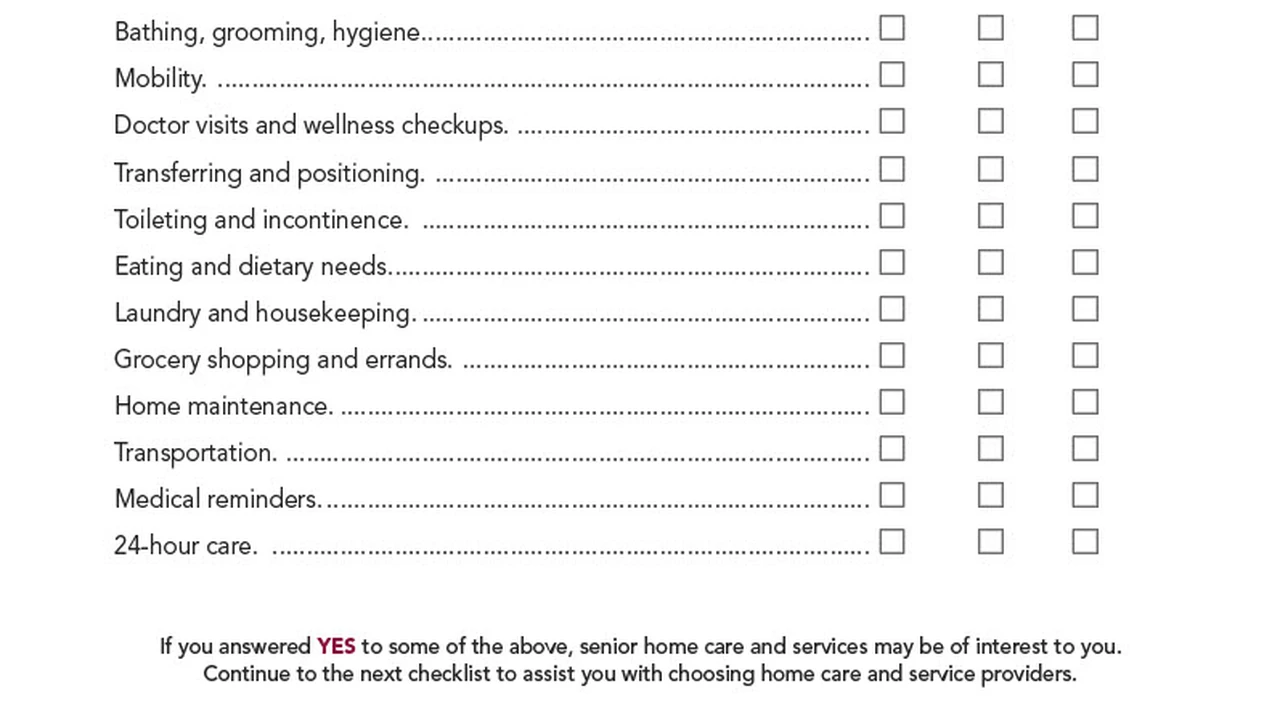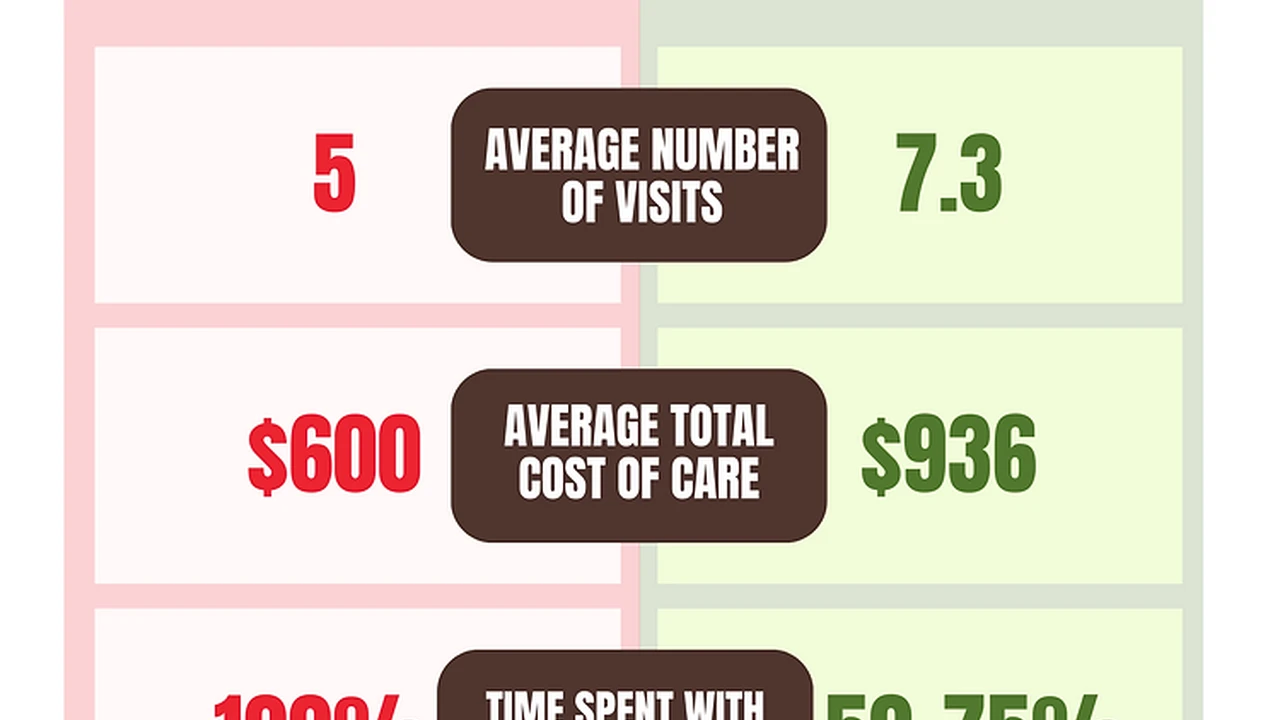Home Care Checklist What to Look For in an Agency
Use this comprehensive checklist to evaluate home care agencies and ensure quality, reliable in-home support.

Home Care Checklist What to Look For in an Agency
Deciding on home care for a loved one is a significant step, and choosing the right agency can make all the difference. You want peace of mind knowing your family member is receiving compassionate, professional, and reliable support right in their own home. But with so many options out there, how do you cut through the noise and find the perfect fit? That's where a solid checklist comes in handy. Think of this as your ultimate guide to navigating the home care agency landscape, ensuring you ask all the right questions and consider every crucial detail.
We're going to dive deep into what truly matters when evaluating home care agencies, from their licensing and training to their communication styles and emergency protocols. We'll also touch on some specific products and technologies that can enhance home care, giving you a holistic view of what to expect and what to demand. Let's get started!
Understanding Home Care Agency Credentials and Licensing
First things first, you need to ensure the agency you're considering is legitimate and operates within legal boundaries. This isn't just about paperwork; it's about safety and accountability. Always verify their credentials.
Licensing and Accreditation for Home Care Agencies
Is the agency licensed by the state? This is non-negotiable. State licensing ensures they meet basic operational standards. Beyond that, look for accreditation from recognized bodies like the Joint Commission or the Accreditation Commission for Health Care (ACHC). While not always mandatory, accreditation signifies a commitment to higher quality standards and continuous improvement. It's a strong indicator of a well-run, reputable agency.
Insurance and Bonding for Home Care Providers
What about insurance? The agency should carry comprehensive liability insurance to protect you and your loved one in case of accidents or negligence. Equally important is bonding, which protects against theft or dishonesty by caregivers. Don't be shy about asking for proof of both. A transparent agency will readily provide these documents.
Caregiver Background Checks and Training Standards
Who will be entering your home? This is a huge concern for many families. Inquire about their hiring process. Do they conduct thorough background checks, including criminal history and reference checks? What about drug screenings? Beyond that, what kind of training do their caregivers receive? Are they certified? Do they have ongoing education, especially in areas like dementia care, first aid, or CPR? A well-trained caregiver is better equipped to handle various situations and provide high-quality care.
Services Offered and Care Planning Flexibility
Home care isn't one-size-fits-all. Your loved one's needs might change over time, so you need an agency that can adapt.
Range of Home Care Services Personal Care and Companionship
What specific services do they offer? Most agencies provide personal care (bathing, dressing, grooming), light housekeeping, meal preparation, medication reminders, and companionship. But do they offer more specialized services if needed, like transportation to appointments, errands, or even pet care? Make sure their service menu aligns with your loved one's current and potential future needs.
Specialized Care Programs Dementia Care and Post-Operative Support
If your loved one has specific conditions, like dementia, Parkinson's, or is recovering from surgery, does the agency have specialized programs or caregivers trained in those areas? Dementia care, for instance, requires a unique approach focused on communication, safety, and engaging activities. Post-operative care might involve wound care or specific mobility assistance. Don't assume; always ask.
Customizable Care Plans and Scalability for Senior Needs
How flexible are their care plans? Can they be tailored to your loved one's exact schedule and preferences? What happens if needs increase or decrease? A good agency will offer customizable plans that can be easily adjusted. You don't want to be locked into a rigid schedule that doesn't work for your family.
Caregiver Matching and Communication Protocols
The relationship between your loved one and their caregiver is paramount. It needs to be a good fit.
Caregiver Matching Process Personality and Skills
How do they match caregivers with clients? Do they consider personality, interests, and specific skills? A good match can significantly impact the success of home care. Ask if you can meet potential caregivers before they start. What's their policy if a caregiver isn't a good fit? You should have the option to request a change.
Communication Channels and Family Updates
How will the agency communicate with you? Will you receive regular updates on your loved one's well-being and care? What are the preferred communication channels (phone, email, online portal)? Clear and consistent communication is vital for your peace of mind.
Emergency Procedures and After-Hours Support
What happens in an emergency? Does the agency have a clear protocol? Is there someone available 24/7 for urgent situations? This is a critical question. You need to know that help is just a phone call away, even in the middle of the night.
Cost, Billing, and Payment Options for Home Care
Understanding the financial aspect is crucial to avoid any surprises down the road.
Transparent Pricing Structure Hourly Rates and Packages
Get a clear breakdown of their pricing. Is it an hourly rate? Are there different rates for different services or times of day (e.g., weekends, holidays)? Do they offer packages? Are there any hidden fees? Ask for a written fee schedule.
Billing Practices and Payment Methods Accepted
How often do they bill? What payment methods do they accept (credit card, bank transfer, check)? Do they assist with insurance claims or veterans' benefits? Some agencies are more proactive in helping families navigate these financial complexities.
Insurance Coverage and Veterans Benefits for Home Care
Will your long-term care insurance cover their services? Do they work with Medicare or Medicaid (though typically home care is not fully covered by Medicare unless it's skilled nursing)? If your loved one is a veteran, do they have experience with Aid and Attendance benefits? Understanding these aspects can significantly impact your out-of-pocket costs.
Reputation, References, and Client Testimonials
An agency's reputation speaks volumes about its quality of care.
Online Reviews and Ratings for Home Care Agencies
Check online reviews on platforms like Google, Yelp, or care-specific directories. Look for patterns in feedback, both positive and negative. While a few negative reviews are normal, a consistent theme of poor service or unprofessionalism is a red flag.
Client References and Testimonials for Quality Assurance
Ask the agency for references from current or past clients. A reputable agency will be happy to provide them. When you call references, ask specific questions about caregiver reliability, communication, and overall satisfaction with the agency's services.
Complaint Resolution Process and Client Satisfaction
What is their process for handling complaints or concerns? How do they ensure client satisfaction? A good agency will have a clear, documented process for addressing issues promptly and effectively.
Technology and Tools Enhancing Home Care Services
Modern home care isn't just about hands-on assistance; technology plays an increasingly vital role in safety, communication, and overall well-being. Let's explore some specific products and how they integrate with home care services.
Remote Monitoring Systems for Senior Safety and Peace of Mind
These systems allow family members and caregivers to keep an eye on a loved one from a distance. They can range from simple motion sensors to more sophisticated setups. For example, CarePredict Tempo Series offers wearable devices that track activity, sleep, and even eating patterns, alerting caregivers to significant changes that might indicate a problem. These are great for seniors who value their independence but need an extra layer of safety. They typically cost around $200-$300 for the device, plus a monthly subscription fee of $50-$70. The use case is for seniors living alone who might be prone to falls or have conditions that require subtle monitoring.
Medication Management Devices for Adherence and Reminders
Medication adherence is critical for seniors. Automated pill dispensers can be a lifesaver. The PillPack by Amazon Pharmacy service not only organizes medications by dose and time but also delivers them to the door. While not a device, it's a service that greatly simplifies medication management. For devices, the MedMinder is an excellent option. It's a locked, automated pill dispenser that provides visual and auditory reminders, and can even send alerts to caregivers if a dose is missed. It costs about $50-$70 per month for the service, including the dispenser. This is ideal for seniors with complex medication schedules or those who are forgetful.
Personal Emergency Response Systems PERS for Immediate Assistance
These are classic 'I've fallen and I can't get up' devices, but they've evolved significantly. Brands like Life Alert and Medical Guardian offer wearable buttons that connect to a 24/7 monitoring center. Some newer models, like the Medical Guardian Mini Guardian, are small, discreet, and have GPS tracking, making them suitable for active seniors who are out and about. Prices range from $30-$60 per month, with some upfront equipment costs. These are essential for any senior at risk of falls or medical emergencies, providing immediate access to help.
Smart Home Technology for Enhanced Senior Living
Smart home devices can make a senior's home safer and more comfortable. Think smart lighting that turns on automatically, smart thermostats for easy temperature control, or smart door locks for secure access. Amazon Echo Show devices, for example, can be used for video calls with family, setting reminders, and even controlling other smart home devices with voice commands. They cost around $80-$250 depending on the model. These are great for tech-savvy seniors or those whose families want to integrate technology for convenience and connection. The Google Nest Hub Max offers similar functionalities. The main difference often comes down to ecosystem preference (Amazon vs. Google) and specific features like camera quality or speaker performance.
Telehealth Platforms for Remote Medical Consultations
Especially relevant in today's world, telehealth allows seniors to consult with doctors from the comfort of their homes. Many home care agencies now integrate telehealth support, helping clients set up appointments and even facilitating the calls. While there isn't one specific 'product' to recommend, platforms like Teladoc or Amwell are widely used. The cost varies depending on insurance coverage and the specific service, but a typical virtual visit might be $0-$75. This is incredibly useful for seniors with mobility issues, those in rural areas, or simply for convenience, reducing the need for travel to a doctor's office.
Final Considerations for Choosing a Home Care Agency
Before making your final decision, take a moment to reflect on these last few points.
Trial Periods and Contract Terms for Home Care Services
Does the agency offer a trial period? What are the contract terms? Can you cancel services without a hefty penalty? Look for flexibility, especially in the beginning, as you assess the fit.
Caregiver Consistency and Backup Plans for Absences
How do they ensure caregiver consistency? Building a relationship with a consistent caregiver is important for many seniors. What's their plan if a caregiver is sick or on vacation? Do they have a reliable backup system in place?
Your Gut Feeling Trust and Comfort with the Agency
Ultimately, trust your gut. Do you feel comfortable with the agency's staff? Do they seem genuinely caring and professional? This emotional connection is just as important as all the practical considerations. Choosing a home care agency is a deeply personal decision, and feeling confident in your choice will bring immense peace of mind to you and your loved one.
:max_bytes(150000):strip_icc()/277019-baked-pork-chops-with-cream-of-mushroom-soup-DDMFS-beauty-4x3-BG-7505-5762b731cf30447d9cbbbbbf387beafa.jpg)






